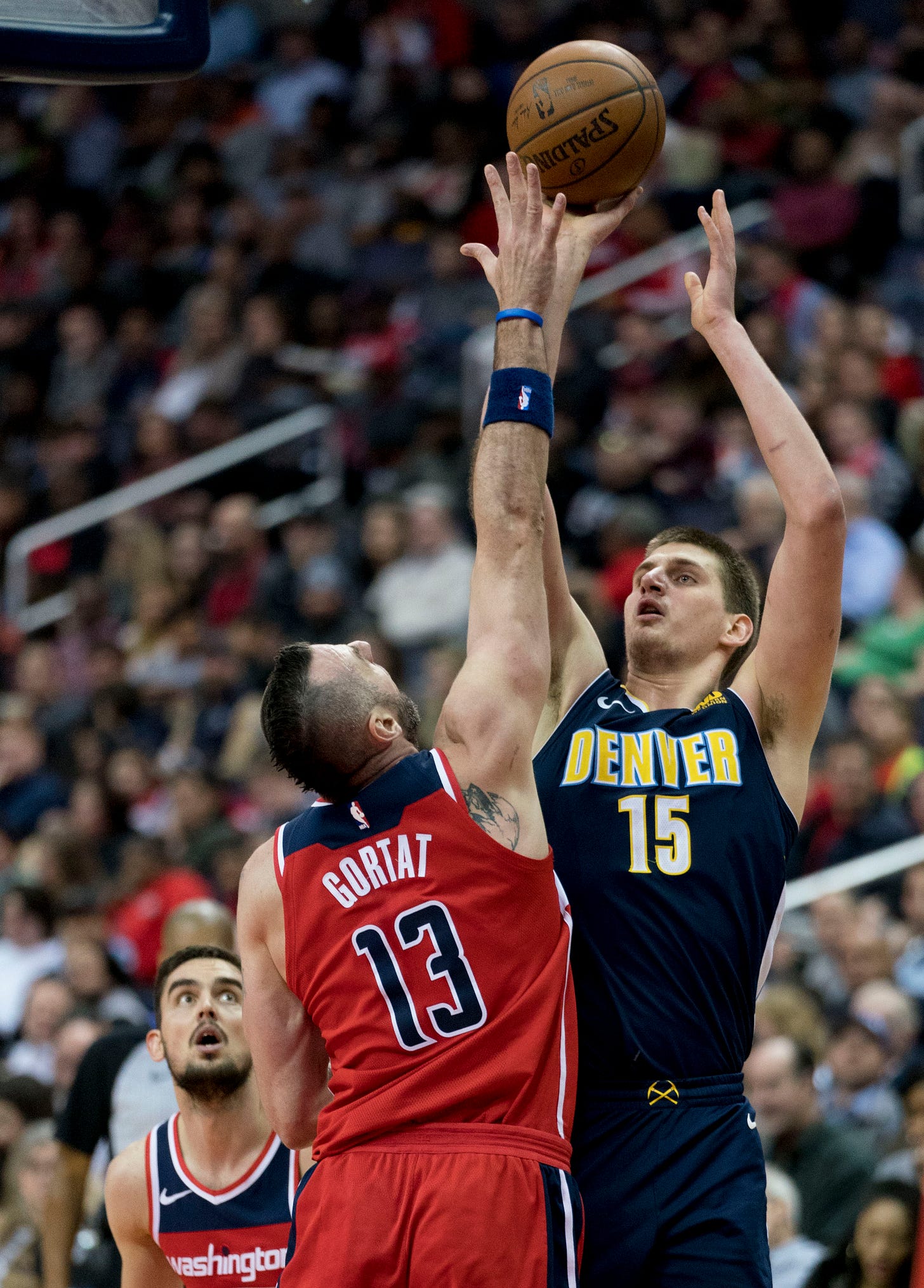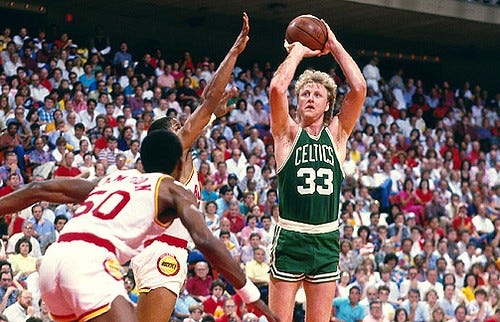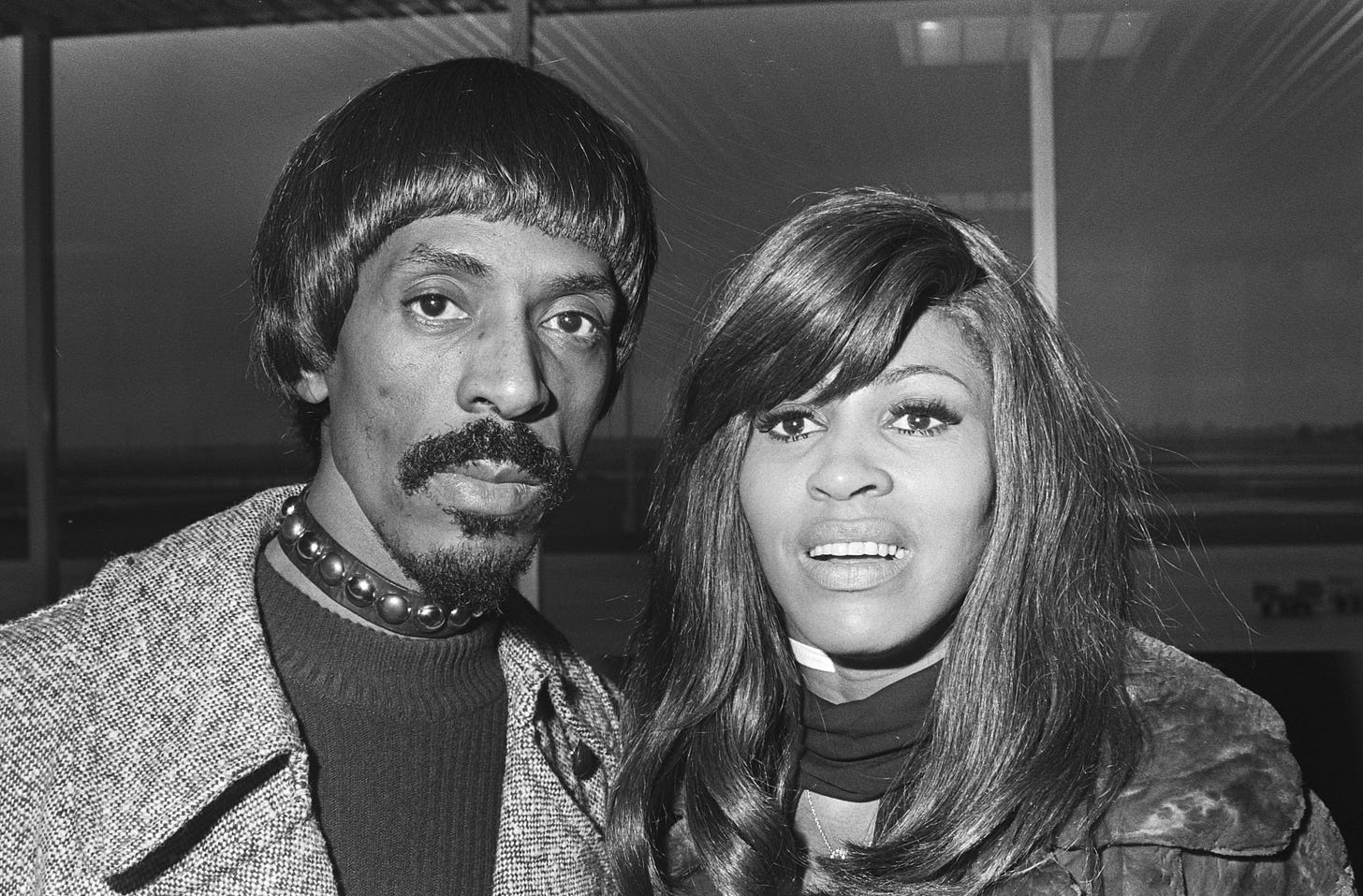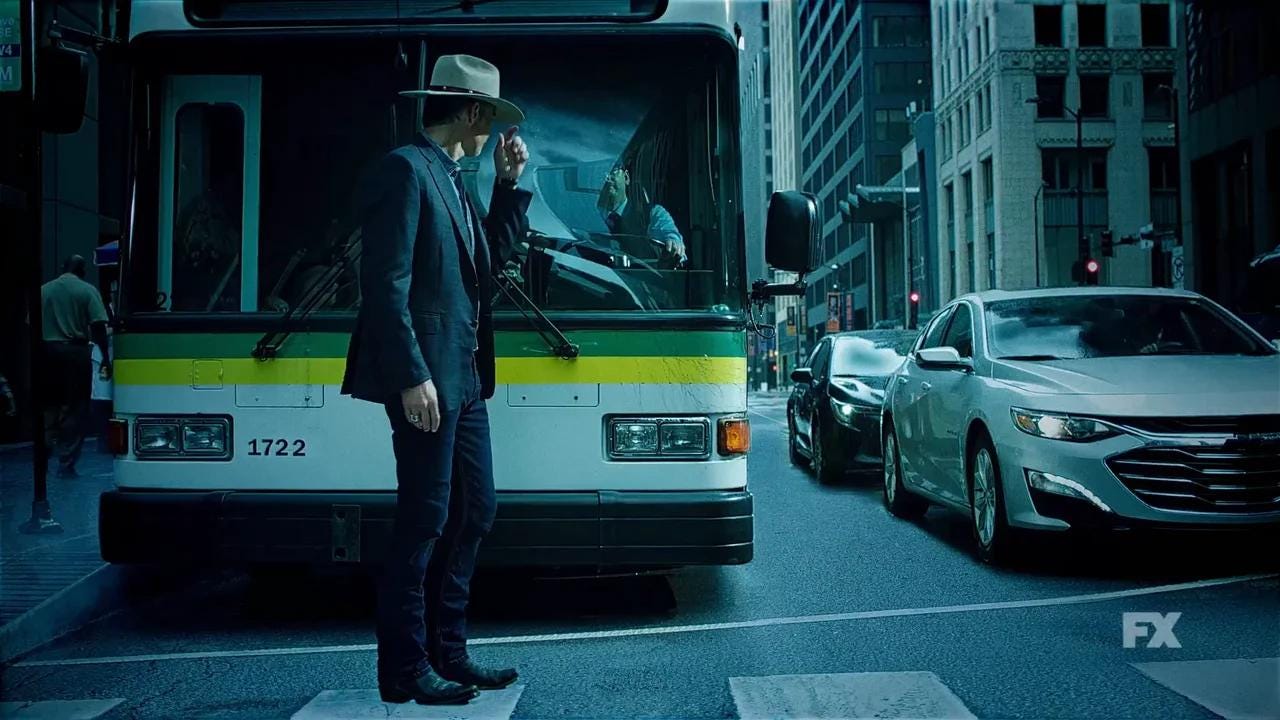
The Denver Nuggets are headed to the NBA Finals for the first time in franchise history. It’s nice to see the team and their fans get a shot at immortality. After all, I know how it feels. Back in 1998, I saw at least one game in every round of the Stanley Cup Playoffs as the Washington Capitals made a run to the Finals for the first time.
While it was unfortunate to see it end in a four-game sweep — I watched in agony from the club level of the MCI Center as the Detroit Red Wings paraded the Cup around the ice after Game Four — I also got to join a throng of fans that greeted the team at their practice rink in Maryland after they defeated the Buffalo Sabres in the Eastern Conference Finals. The memories will last a lifetime and I know the fans in Denver will learn to enjoy them all whether the Nuggets win or lose in the Finals.
Which gives me an opportunity to talk about me and Larry Bird.

Back in 1990, I was working for COMSAT, a satellite communications company based in Washington, D.C. I had an entry level job on the Corporate Comms staff. In addition to the communications satellites the company owned shares of, COMSAT also had a subsidiary that provided in-room movies at hotels and motels. It was called COMSAT Video Enterprises (CVE).
Before I joined the company, they had hired Bob Wussler, the legendary producer of The NFL Today and a former executive with Turner Broadcasting. Wussler wanted to turn CVE into a direct broadcast satellite (DBS) television business, a market that’s currently dominated by DirecTV and Dish Network. Wussler figured he would need programming to fill out his network schedule and that the way to do it was to buy a professional sports franchise, just as Ted Turner had done with the Atlanta Braves and TBS.
At the time, the only franchise available was the aforementioned Denver Nuggets, so CVE snagged them.1 And as we closed in on the 1990-91 NBA season, my boss decided that we needed to publish a season preview of the team in the employee newsletter. I was given the assignment and packed off to Denver.2
It was the first business trip I ever took and it was a great one. While I didn’t get to see much of the city — I had a room in a Holiday Inn across the parking lot from McNichols Arena and Mile High Stadium — I did spend a couple of days talking to team executives and watching practices. It was a time of transition with the Nuggets. Gone were Alex English and Fat Lever, and in were new head coach Paul Westhead, Orlando Woolridge, Todd Lichti and Mahmud Abdul-Rauf, who was then known as Chris Jackson when he was fresh out of LSU.3
I got to interview Westhead and General Manager Bernie Bickerstaff. I also chatted with a former CBS Sports executive named Bob Tassie who gave me a seminar on the business of televised sports. “Nuggets” from that discussion ended up in blog posts at Off Wing Opinion for years into the future. As much as I thanked him at the time, I don’t think it could ever be enough.
There were a lot of other interesting names on the roster that I didn’t notice at the time: Tim Legler, Anthony Mason and Avery Johnson to name a few. But the highlight came on my last night in town when the Celtics visited for a pre-season game. As an employee of the team’s parent company, I was granted an all-access pass. Hardly able to contain my excitement, I showed up a full three hours before tipoff.
Stowing my gear on the press level, I walked down to the floor where I discovered Bird alone on the court taking what seemed like an endless stream of foul shots. It was clear he was the last Celtic left on the court after a pre-game practice. He didn’t notice me, and I wouldn’t dare bother him, so I slipped silently into a seat at court side and watched him for about 15 minutes until he finished.
After the last shot fell through the cylinder, Bird turned, and without acknowledging my presence, jogged back off the court and to the visiting locker room. In later years when I told the story, friends would ask me why I didn’t say anything or ask if I could rebound for him. Truth be told, I worked for the team that owned the Nuggets, and I was worried what my hosts might think if I was seen fraternizing with the opposition.
Looking back, I’m more than satisfied with my decision. I pushed away from the table with some of the house’s money in my pocket. Besides, how many other people can get to say they hung out with Bird while he practiced alone in an empty arena?
In anticipation of the return of Raylan Givens and Justified to FX, I’ve been binge watching the cable series via Hulu over the past few weeks. I finished up on Wednesday night, and it’s been a pleasure to revisit.
The storylines are compelling, characters have believable arcs and the writing crackles, bouncing between the witty (“I dis-armed him.”) and the profound (“The past is a statement. The future is a question.”)
Even supporting characters who come and go like Robert Quarles, Mags Bennett or Dewey Crowe are fully fleshed out and have believable motivations. And while there’s plenty of action, don’t be fooled into thinking Justified is just about cops and robbers. In fact, Justified is about cops and robbers just like Slap Shot is about ice hockey.
Now that I’m through the series, I still have a little less than two months to wait for the premiere of Justified: City Primeval in July. What should I binge next?

On Wednesday, we received the sad news that Tina Turner had died. She was 83.
Though she’s been out of the public eye for some time, no one was ever going to forget her. Yet, there was a time after her divorce from her abusive husband, Ike, when Turner’s career was on a slow burn. By the time her comeback album, Private Dancer, was ready for release in 1984, we were already several years into the MTV era.
Normally, I wouldn’t have paid much mind to Turner at that point in my life. She was a performer that was firmly of my parents’ generation. Heck, Mom and Dad even had an 8-track tape of a live album she recorded with Ike.
But Turner was open to doing something different, and invited songwriter Rupert Hine to produce a pair of singles for the album, including You Better Be Good to Me. He had previously produced the English New Wave quartet, The Fixx, and asked guitarist Jamie West-Oram to play on the track. Later, he invited the band’s lead singer, Cy Curnin, to provide backing vocals.
The first time I watched the video, I immediately recognized West-Oram, only to be shocked when Curnin joined Turner on stage in an awkward — for him anyway — dance routine. The success of the track on the U.S. charts showed that Hine knew what he was doing when he made those musical choices, especially when he had a chance to work with an earth-shattering talent like Turner.
After a week or so, when the strength of the track couldn’t be denied, I distinctly recall that MTV began airing an edit of the video where the screen time Curnin and West-Oram enjoyed was significantly reduced. Fortunately, that original edit, which I’ve embedded above, still exists on Turner’s official YouTube channel. I like to think she wanted to make sure Curnin and West-Oram would get their due in perpetuity.
May she rest in peace.
Later, the successor to CVE also purchased the Colorado Avalanche. While they had the broadcast content, the DBS business didn’t come together in time to stem the financial losses. On the morning Wussler and his top lieutenants were dismissed, I had scheduled a series of interviews with CVE executives by phone to talk about their updated strategy for the business. None of my calls that day were returned. It was my first lesson in the realities of corporate life. CVE was spun off into Ascent Entertainment and the rest, including a Stanley Cup victory for the Avalanche in their inaugural season, is history.
If you’re wondering, yes, I’m pulling for the Nuggets. Basketball fans in Denver have waited too long for a championship.
Westhead was fresh off his run to the Sweet 16 as the head coach at Loyola-Marymount, and he was committed to bring that run and gun offense to Denver in his return to the NBA after his dismissal as head coach of the Los Angeles Lakers. Westhead had won a championship with the Lakers in 1980, but this time it didn’t work out. The Nuggets lost seven straight to start the season on their way to a 20-62 record. After a second miserable campaign in Denver, Westhead was out. He bounced around for the rest of his career, and won a WNBA title with the Phoenix Mercury in 2007, making him the only coach to lead teams to NBA and WNBA titles.




